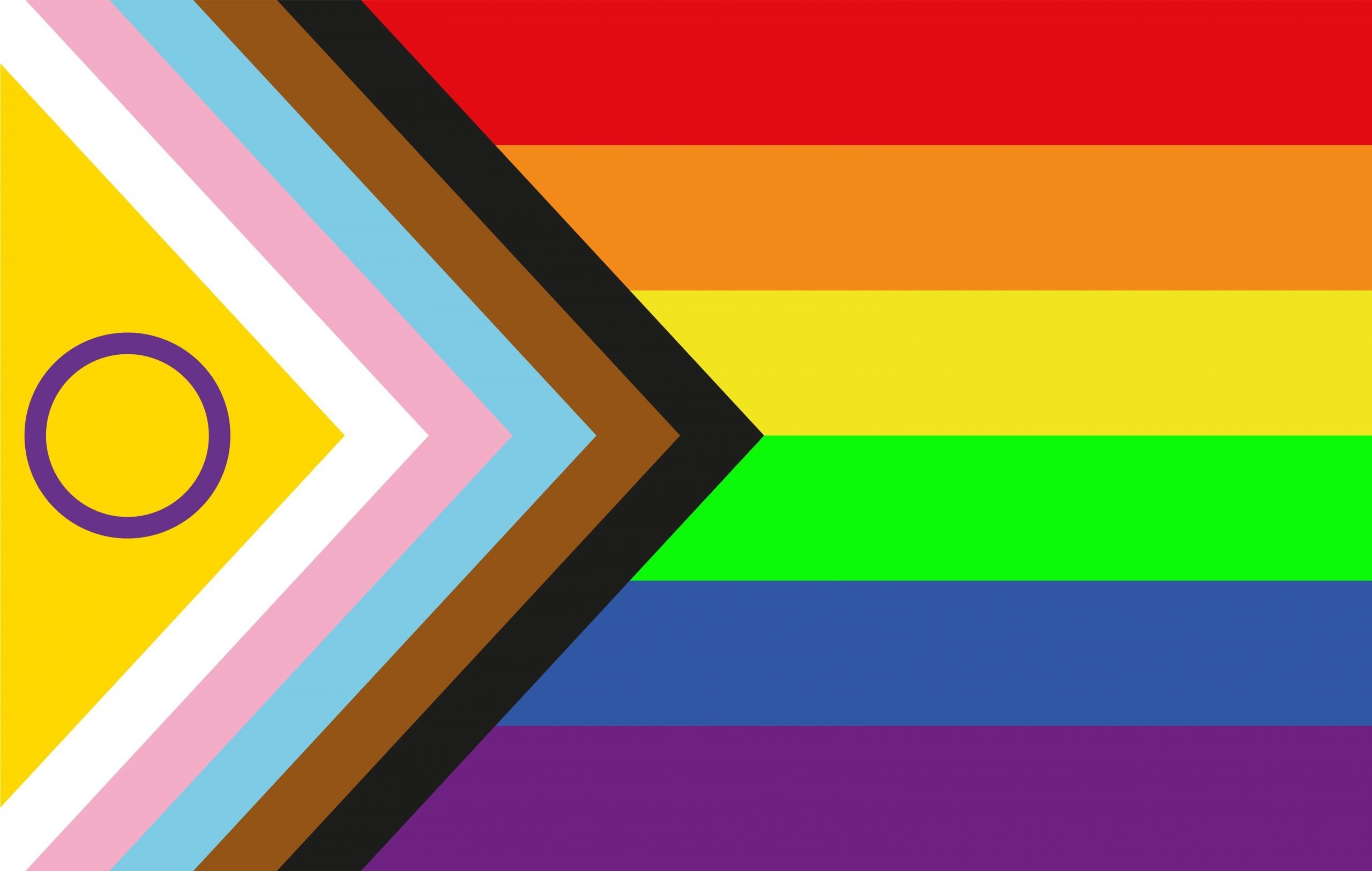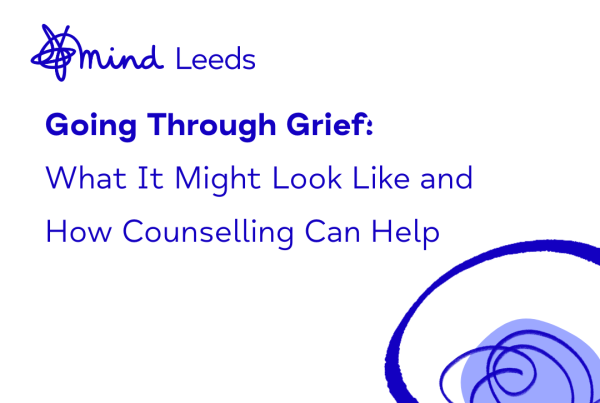February is LGBT History Month, and we are celebrating at Leeds Mind.
The month is about celebrating the history and progress of the LGBTIQ+ community, but for us, it’s also about hearing the stories of how mental health might affect them.
This is important because those of us who identify as LGBTIQ+ are more likely to face discrimination, stigma and abuse. The trauma and isolation that can be felt because of this has a huge impact on our mental health.
LGBTIQ+ people are two to three times more likely to experience a mental health difficulty than straight people and/or people who identify to the gender given to them at birth.
2018 reports from LGBTIQ+ rights charity Stonewall found that:

The LGBT Intersex-inclusive progress flag is shown. To read more, please visit: Intersex Equality Rights UK (consortium.lgbt)
- Over half of the LGBTIQ+ people they spoke to had experienced depression in the last year (with a further 10% believing they may have experienced it too)
- Rates of depression were higher for trans people (67%)
- Rates in non-binary people were higher still, at 70%
- People who are bi and 13% more likely to experience depression than people who identify as gay or lesbian
It’s important to remember that LGBTIQ+ people might have mental health difficulties that relate to some other factor in their life – it may have nothing to do with their queer identity. Equally, they may never have experienced any mental health difficulties.
Leeds Mind stands in solidarity with all LGBTIQ+ people who experience mental health problems, past and present. We want to make it clear to everyone involved with our charity (including the public, our service users, staff, volunteers and supporters) that ours is a safe space where everybody is welcome regardless of their gender identity or sexual orientation.
For more information about the LGBTIQ+ experience of mental health, please visit the Mind website.



